100 Hrs – Hatha Yoga Teacher Training Certificate Course
Contact Hours: 50 Hours
Non-Contact Hours 50 Hours
Contact Hr – Direct or live interaction with Teacher. This includes in-person or real-time online sessions where you are actively engaged with the teacher, receiving instruction, feedback, and guidance.
Non-Contact Hr – Reading a book or article, or watching a video, Self-Practice, Written Assignment, Project Work, Audio Assignment, Video Assignment.
- Course: 100 Hrs Hatha Yoga Teacher Training Certificate Course
- Total Fee for the Training(For Indian Citizens Only): INR 20,000(Registration Fee) + INR 40,000 (Course Fee) = INR 60,000
- Total Fee for the Training(For Non-Indian Citizens Only): USD 400(Registration Fee) + USD 500 (Course Fee) = USD 900
- Accreditation: Yoga Alliance USA YACEP.
- Skill level: Beginners, Intermediate & Advanced
- Language: English
- Mode: Offline/Online/Hybrid/Self-Paced
- About the course facilitator: Dr. S. Karuna Murthy, M.Sc., Ph.D., E-RYT 500, YACEP
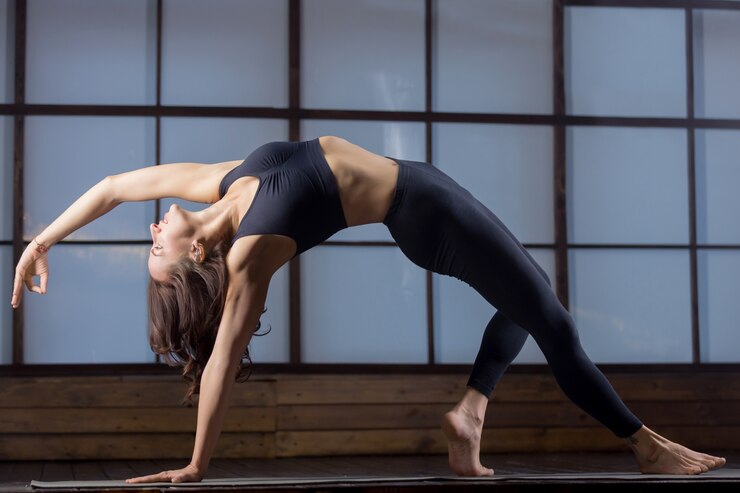
- Language: Our courses will be held in English Medium.
- Course Dates: Please Contact Us (karunaayoga@gmail.comor +91 9686549129)
Hatha Yoga Teacher Training Certificate Course
Our 100 hours Yoga Teachers Training Course Advanced Hatha Yoga Teacher Training Course is beautifully programmed for those enthusiasts who desire to have a professional certificate in the future but can’t afford the time of two month in one slot.
If you have less time or you want to learn slowly, so 50-hour yoga teacher training course in Bangalore can be the perfect yoga course for you, karuna yoga offers self-paced yoga teacher training course in Bangalore India, and you can join the other half in 1 years of time to complete 200/300 hours Teacher Training Course.
In order to obtain a professional certificate of 200/300 Hour Teachers Training Course affiliated with Yoga alliance one has to complete the 200 Hours which usually completed in one or two month of time, we designed this course in such a way that if any participant wants to first get introduced with the way and process of professional yoga teacher training course and have only short time then students can enroll for this yoga course.
Our 100 hours Yoga Teacher Training Course program runs along with our regular student of 200/300 hour Teacher Training Course students in the first phase, upon completion of the course if a student wants to finish remaining their balance 150/250 hours of Teacher Training Course in the future, then students can continue the course of the second stage of Teacher Training Course to obtain 200/300 hour Teacher Training Course certificate affiliated with Yoga Alliance in order to have a professional certificate.
Our 100 hours can be accepted as continuing education from Yoga Alliance if in future you want to continue the training from our center. Please make a note while completing 100 hour TTC you will be only provided with a certificate issued by our organization and the certificate will not be affiliated with Yoga Alliance, and only after completion of the second stage of balance 150/250 hours of TTC, which technically becomes 200/300 hours in total of training, we will issue the certificate of 200/300 hour Teacher Training Course.
Karuna Yoga Vidya Peetham is a Registered Yoga teacher training school in Bangalore, India with an affiliation of Yoga Alliance, USA which offers 50 Hour Yoga Teacher Training in Bangalore, India. If you look forward to the course then this is the best choice.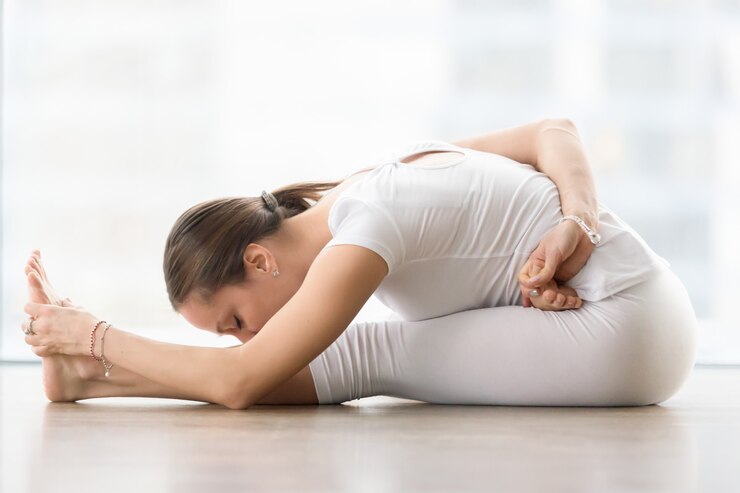
International Certification
Upon successful completion of the course, you will receive a certificate of completion of the 100 hour Hatha Yoga course, that you can count towards your continuing education. Our yoga teacher training courses are accredited by Yoga Alliance USA.
Pre-requisites:
-
- This course is open to all students who wish to deepen their knowledge and application of some of the highest teachings of
-
- Participants do not need to be yoga
-
- Mastery of any yoga practice is not
-
- Only your sincere desire for knowledge and your commitment to personal
-
- Love for Yoga is the most important eligibility factor for learning this course.
-
- Students who want to know Yoga in totality and move beyond Asana and Pranayama, Mudra & Bandha.
What do I need for the online course?
-
- Yoga mat
-
- Computer / Smartphone with camera
-
- Internet connection
-
- Yoga Blocks
-
- Pillow or Bolster or Cushion
-
- Strap
-
- Notebook and Pen
-
- Zoom
Assessment and Certification
The students are continuously assessed throughout the course at all levels. There will be a written exam at the end of the course to evaluate the understanding of the philosophy of Yoga and the skills of the students. Participants should pass all different aspects of the course to be eligible for the course diploma.
Recommended Texts
-
- Asana Pranayama Mudra Bandha by Swami Niranjananda Saraswati
-
- K.S. Iyengar, Light On Yoga.
Terms & Conditions:
After the payment of the course fee, you will receive a link to access the classes through Zoom. This short term course is only meant for sincere students of Yoga practitioner. Without submitting the required assignments, you will not receive a certification. Please note that the course fee is non refundable. However, if you can’t start the course due to severe circumstances, please get in touch with us and we’ll find a solution for you.
How to Register?
You can apply online with the application, fee of INR 20,000 (non-refundable) advance towards the course fee.
Curriculum – 100 Hrs – Hatha Yoga Teacher Training Certificate Course
Mantra Chanting
- Gayatri mantra
- SahanaBabatu
- Guru brahma Guru Vishnu
- Mantra Science
- The power of Mantra
- Origin of mantra
- Mantra is not a religion
- The vibration of sound
- Om Chanting
- Om NamahShivaya Chant
- Dum durgayinamah
- Kundalini Mantra chant
- Om namoBhagavateVasudevaya chant
- Om Ganapati
- Asato ma sadgamaya
- Twamevamataca pita
- TrayamvakamYajamahe
- Yogenachittsya
- Suryanamaskar 12 Mantra (Om Mitraya)
Hatha Yoga Theory
- Hatha Yoga Philosophy
- Ancient Scriptures
- Aim and Objectives
- Meaning of Yoga Therapy
- Balancing
- Hatha yoga with the connection of chakras and Nadis
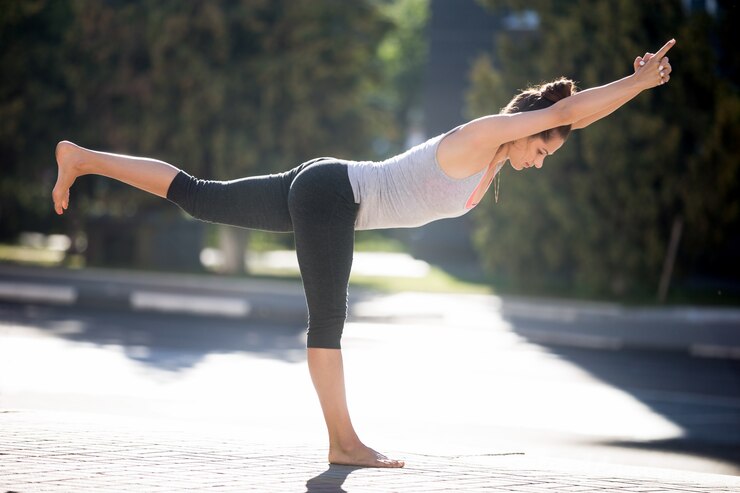
Practice
- Centering postures series
- Sun Salutation/Surya Namaskar
- Moon Salutation/Chandra Namaskar
- Standing postures
- Kneeling postures
- Sitting Postures
- Forward bending postures
- Backward bending postures
- Supine postures
- Prone Postures
- Inversions
- Twisting postures
- Balancing Postures
- Relaxing Posture
- Meditative Asana
Pranayama (Breathing Practices)
Theory/Philosophy:
- What is Prana
- What is Pranayama
- What is breath and connection with the Prana
- Importance and benefits of Pranayama
- How to prepare ourselves to practice them
- Aspects of Breathing
- Ancients Texts of Breathing
- General understanding
- Understand all about nostrils and how to activate them
- Secrets of Pranayama
- Breath flow in 5 elements
- Unit of Prana
- Function of Prana
- Three levels of Prana
- Three Gunas
- How does prana flow
- Quality of breath
- Imbalance of Prana
- Retention of breath
- 6 Sitting positions for Pranayama practices
- Breathing pattern
- Prana connection with chakras and Kundalini
Practices
- Clavicular Pranayama
- Thoracic Pranayama
- Diaphragmatic Pranayama
- Yogic Pranayama
- Pranava Pranayama
- Nadisodhanam Pranayama
- Bhastrika Pranayama
- Kapalbhati Pranayama
- Bhramari Pranayama
- Ujjayi Pranayama
- Sitali Pranayama
- Sitkari Pranayama
- Murcha Pranayama
- Surya bhedana Pranayama
- Chandra bhedana Pranayama
Dhyana (Meditation)
Theory/Philosophy:
- Introduction to Meditation
- History of Meditation
- Preparation to Meditation
- What is Meditation and what it is not
- Why- How- Where- When Meditation
- Philosophy of Meditation
- Meditation Traditions
- Meditation Scriptures
- Aim and Objectives of Meditation
- Sitting Positions
- How to Sit Correctly
- Preliminary Practices Before Practicing Meditation
- Role of Diaphragmatic Breathing in Meditation
- Correct Breathing in Meditation
- How to Relax in Meditation
- Lifestyle- Diet- Sleep- Sex- Job- Rules in Meditation
Practices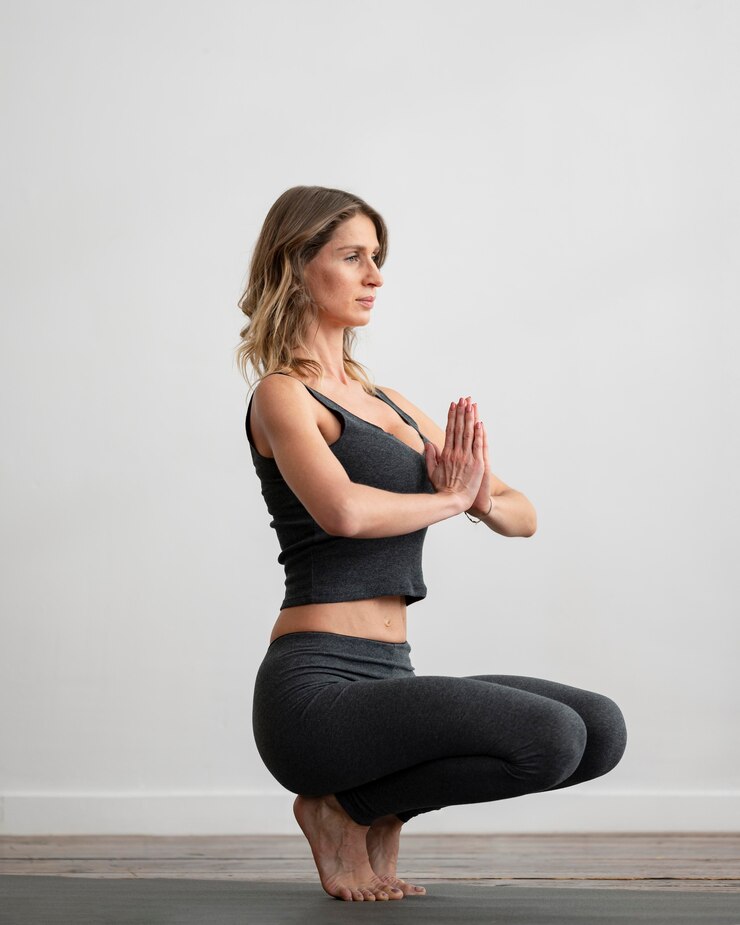
- Tratak Meditation
- Music Meditation
- Om Meditation
- Mantra Power Meditation
- Dynamic Moving Meditation (Osho)
- Buddha Walking Meditation
- Basics Foundation Meditation Practice
- Breath- Mind- Mantra Awareness
- Karma Yoga Meditation
- Natraj Meditation
- 7 Chakra Awareness Meditation
- Ajna Chakra Awakening Meditation
- Kundalini Active Meditation
- Breath Awareness (Anapana)
- Mindfulness and Sensation
- Total Awareness Practice
- Mantra &Kirtan Meditation Practices
- How to Do Japa (recitation)
- Kirtan Even and Creating a Spiritual Vibe
- Silence Practice
- One Day Silence Meditation
Yoga Nidra (Psychic Sleep)
Theory/Philosophy:
- Meaning and Purpose of Yoga Nidra
- Different Schools and Traditions of Yoga Nidra
- Tantric Origin of Yoga Nidra
- Lifestyle and Rules for Yoga Nidra Practitioners
- Benefits and Risks of Yoga Nidra
- Difference Between Yoga Nidra and Meditation
- Yoga Nidra Experience
- Yoga Nidra and Healing
- 4 States of Consciousness
- 3 Body Awareness
Practices:
- Tension Relaxation
- Full body Relaxation –basic yoga Nidra
- Inner silence Yoga Nidra
Shat- Kriya & Cleansing (Shatkarma)
Theory/Philosophy:
- What is Satkarma
- Benefits and Risks
- Who Should and Should Not Practice It
- Experiences
- Preparation to Shatkarma
- Practices After Completing It
- Nadi Cleansing
Practices:
- Jihwadhauti
- Danta-Dhauti
- Karna-Dhauti
- Rubber-neti.
- Jalaneti.
- Kapalbhati.
- Agnisara
Yoga Philosophy (Yoga Darshana)
- Why Is Yoga Philosophy the Most Important Among All?
- Introduction to 9 Major Indian Philosophy
- Introduction to Indian Culture and Spirituality and Himalayan Tradition
- Introduction to the Ancient Scriptures of Yoga and Spirituality
- Meaning and Purpose of Indian Philosophy
- History of Yoga
- Types of Yoga
- Patanjali and His Work
- Introduction to Yoga Sutra Text
- Eight Limbs of Yoga
- Yamas & Niyamas
- Philosophy of Asana & Pranayama
- Science of Karma
- Philosophy of Concentration, Meditation, and Samadhi
- Overview of First Chapter
- Overview of Second Chapter
- Overview of the Third and Fourth Chapter of Patanjali
- Mind and Its Control
- Introduction to BhagavatGeeta& Upanishad
- Chakras
- Nadi
- Kundalini
- Three-Fold Pain
- Three Bodies (Sharira)
- Panchakosha
- Tri-guna
- Mahabhuta (Theory of Elements)
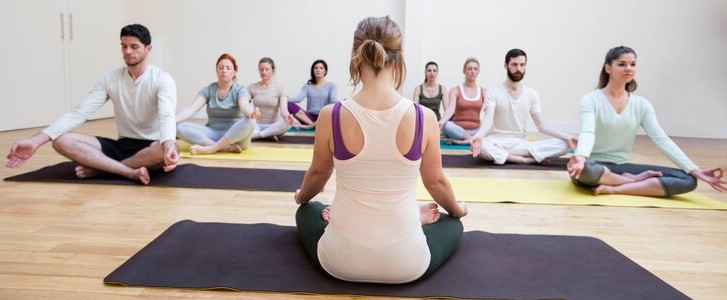
Anatomy & Physiology (Sharirvijnan)
- Introduction to Body and Its Structure
- Body Planes
- Anatomical Movements
- Bones of the Skull
- Cervical Vertebrae
- Shoulder Girdle/ Arm Bones/ Pelvic Region
- Deformities of the Spine
- Lower Extremity
- Tendons and Ligaments
- Muscular System
- Nervous System
- Respiratory System
- Nadi (Energy Channel)
- Chakras (Energy Centres)
- Kundalini (Prime Energy and Souce of All Creativity)
- Panchakosha (5 Layers)
- PanchaMahabhuta (5 Elements and Body Structure)
- Tri-Guna (Three Attributes)
Mudra(Gesture)
- The Secrets of Mudra
- The Position of Elements in the Hands
- The Need of Mudra
- The Importance and Advantages of Mudras
- Special Guidelines About Mudra
- Gyan Mudra (Gesture of Wisdom)
- PurnaGyan Mudra (Gesture of Complete Wisdom)
- Vairagya Mudra (Gesture of Dispassion)
- Abhaya Mudra (Gesture of Blessing, Fearlessness)
- Dyan Mudra (Meditation Mudra)
- Vayu Mudra (Gesture of Air)
- Pran Mudra (Gesture of Prana)
- Prithvi Mudra (Gesture of Earth)
- Surya Mudra (Gesture of Sun)
- Varun Mudra (Gesture of God of Water)
- Shoonya mudra (Gesture of Openness, Space)
- Pran-Apan Mudra (Gesture of PranaApana)
Bandhas (Energy Lock)
- Meaning and Importance of Energy Lock
- Why the Energy Lock and How Our Energy Gets Drained
- Energy Knots and How to Open Them
- Understanding the Three Chakras; Muladhara-Manipura-Visuddhi
- Experience of Energy Lock
- Benefits and Risks of Bandha Practices
- Agnisar (Preparation to Uddiyana)
- VahirKumbhaka (External Retention)
- AntarKumbhaka (Internal Rentention)
- Ashwini Mudra to prepare Mulabandha
- Vajroli Mudra to prepare Mulabandha
- Mulabandha
- UddiyanaBandha
- JalandharaBandha
Teaching Methodology
- Avoid injuries
- Manage happiness during and after the practice
- Work with all sides of Yoga and all levels
- Give a meditative experience
- Manage and balance the energy flow
Here is what you will learn;
- Proper demonstration of a Yoga practice
- The proper way to instruct and guide a lesson
- Proper alignment of yoga postures
- Proper adjustment with/ without props
- Yogic personality establishment
Asanas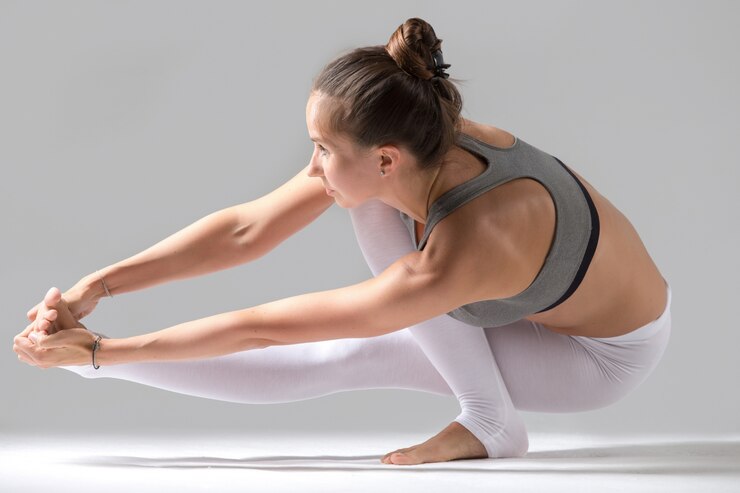
Seated Yoga Poses
1.Accomplished Pose-siddhasana
2.Balancing Bound Angle Pose-Dandayamna Baddha Konasana
3.Balancing Table Pose-Dandayamna Bharmanasana
4.Bound Angle Pose-Baddha Konasana
5.Camel Pose-Ustrasana
6.Cat Tilt Pose-marjariasana
7.Child’s Pose-Balasana
8.Cow Face Pose-Gomukhasana
9.Cow Pose-Bitilasana
10.Crane Pose-Bakasana
11.Dolphin Pose-Ardha Pincha Mayurasana
12.Downward Facing Dog Pose-adho mukha shvanasana
13.Easy Pose-Sukhasana
14.Extended Dog Pose-Utthita Svanasana
15.Extended Leg Squat Pose-Utthita Malasana
Seated asanas
16.Extended One-Legged Pigeon Pose-Utthita Eka Pada Kapotasana
17.Eye of the Needle Pose-Sucirandhrasana
18.Firelog Pose-Agnistambhasana
19.Flowering Lotus Pose-Vikasitakamalasana
20.Full Lotus Pose-padmasana
21.Garland Pose-malasana
22.Gate Pose-parighasana
23.Gracious Pose-Bhadrasana
24.Half Camel Pose-Ardha Ustrasana
25.Half Circle Pose-Ardha Mandalasana
28.Half Lotus Pose-ardha padmasana
29.Half Prayer Twist Pose-Ardha Namaskar Parsvakonasana
30.Half Pyramid Pose-Ardha Parsvottana
31.Half Upright Seated Angle Pose-Ardha Urdhva Upavishta Konasana
32.Hero Pose-Virasana
33.Inclined Plane Pose-purvottanasana
34.Lion Pose-Simhasana
35.Low Plank Pose-Ardha Phalakasan
36.Low Warrior I Pose-Ardha Virabhadrasana I
37.Monkey Pose-hanumanasana
38.One Handed Tiger Pose-Eka Hasta Vyaghrasana
39.One Leg Boat Pose-Eka Pada navasana
40.One Leg Downward Facing Dog Pose-Eka Pada Adho Mukha Svanasana
41.One-Legged King Pigeon (Version A) Pose-Eka Pada Rajakapotasana A
42.Plank Pose-Phalakasana
43.Prayer Squat Pose-Namaskarasana
44.Rabbit Pose-Sasangasana
45.Reverse Table Top Pose-Ardha Purvottanasana
46.Revolved Downward Facing Dog Pose-Parivrtta Adho Mukha Shvanasana
47.Revolved Head to Knee Pose-Parivrtta Janu Sirsasana
48.Seated Angle Pose-upavistha konasana
49.Seated Forward Bend Pose-Paschimottanasana
50.Seated Head to Knee Pose-Janu Sirsasana
51.Seated Yoga Seal Pose-Upavistha yoga mudra
52.Side Plank Pose-Vasisthasana
53.Side Seated Angle Pose-parsva upavistha konasana
54.Staff Posture-dandasana
55.Table Pose-Bharmanasana
56.Tiger Pose-vyaghrasana
57.Tortoise Pose-Kurmasana
58.Upright Seated Angle Pose-Urdhva Upavishta Konasana
59.Upward Boat Pose-Paripurna navasana
Standing Asanas
60.Chair Pose-Utkatasana
61.Chair Twist Pose-Parivritta Utkatasana
62.Crescent Moon Pose-Urdhva Hastasana
63.Dancer Pose-Natarajasana
64.Eagle Pose-Garudasana
65.Extended Hand to Toe Pose-Utthita Hasta Padangusthasana
66.Extended Side Angle Pose-Utthita Parsvakonasana
67.Five Pointed Star Pose-Utthita Tadasana
68.Goddess Squat Pose-Utkata Konasana
69.Half Forward Fold Pose-Ardha Uttanasana
70.Half Moon Pose-Ardha Chandrasana
71.Half-bound Lotus Forward Fold Pose-Ardha Baddha Padmottanasana
72.High Lunge Pose-Utthita Ashwa Sanchalanasana
73.Mountain Pose-Tadasana
74.Prayer Twist Pose-Namaskar Parsvakonasana
Standing Asanas
75.Pyramid Pose-Parsvottanasana
76.Reverse Warrior Pose-Viparita Virabhadrasana
77.Revolved Half Moon Pose-Parivrtta Ardha Chandrasana
78.Resolved Side Angle Pose-Parivrtta Parsvakonasana
79.Revolved Triangle Pose-Parivrtta Trikonasana
80.Shiva Twist Pose-Parivrtta Natarajasana
81.Standing Backbend Pose-Anuvittasana
82.Standing Forward Fold Pose-Uttanasana
83.Standing Hand to Toe Pose-Hasta Padangusthasana
84.Standing Head to Knee Pose-Dandayamana Janu Sirsasana
85.Standing Splits Pose-Urdhva Prasarita Eka Padasana
86.Standing Yoga Seal Pose-Dandayamana Mudrasana
87.Tiptoe Pose-Prapadasana
88.Tree Pose-Vrikshasana
89.Triangle Pose-Utthita Trikonasana
90.Upward Forward Fold Pose-Urdhva Uttanasana
91.Warrior I Pose-Virabhadrasana I
92.Warrior II Pose-Virabhadrasana II
93.Warrior III Pose-Virabhadrasana III
94.Warrior Seal Pose-Virabhadra Mudra
95.Wide-Legged Forward Bend Pose-Prasarita Padottanasana
Supine Asana
96.Belly Twist (Version A) Pose-Jathara Parivartanasana
97.Belly Twist (Version B) Pose-Jathara Parivartanasana B
98.Bridge Pose-Setu Bandhasana
99.Corpse Pose-Shavasana
100.Extended Supine Hand to Toe Pose-Utthita Supta Padangusthasana
101.Fish Pose-Matsyasana
102.Half Shoulder Stand Pose-Ardha Sarvangasana
103.Half Supine Hero Pose-Ardha Supta Virasana
104.Half Wind Relieving Pose-Ardha Pavana Muktasana
105.Happy Baby Pose-Ananda Balasana
106.One Leg Bridge Pose-Eka Pada Setu Bandhasana
107.Plow Pose-Halasana
108.Supine Bound Angle Pose-Supta Baddha Konasana
109.Supine Hand to Toe Pose-Supta Padangusthasana
110.Supine Hero Pose-Supta Virasana
111.Supine Pigeon Pose-Supta Kapotasana
112.Supine Spinal Twist Pose-Supta Matsyendrasana
113.Wheel Pose-Urdhva Dhanurasana
114.Wind Relieving Pose-pavana muktasana
Prone Asana
115.Bow Pose-Dhanurasana
116.Cobra Pose-Bhujangasana
117.Crocodile Pose-makarasana
118.Downward Facing Frog Pose-Adho Mukha Mandukasana
119.Eight-Limbed Pose-Ashtangasana
120.Four Limbed Staff Pose-Chaturanga
121.Half Bow Pose-Ardha Dhanurasana
122.Half Locust Pose-Ardha Shalabhasana
123.Locust Pose-Shalabhasana
124.Side Bow Pose-Parsva Dhanurasana
125.Snake Pose-Sarpasana
126.Sphinx Pose-Salamba Bhujangasana
